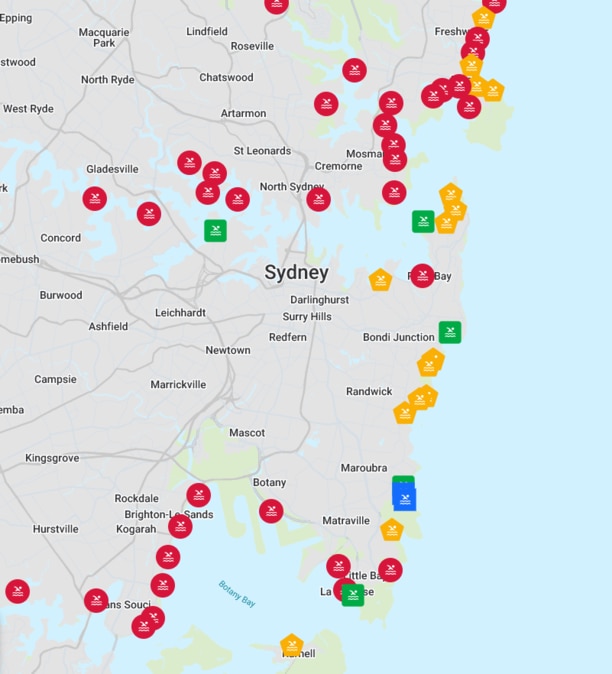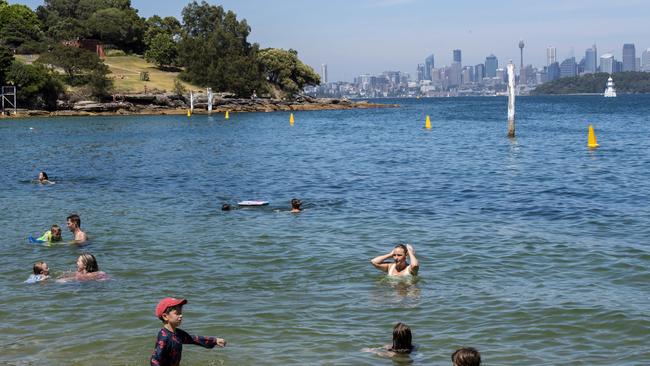Aussies warned to avoid iconic beaches as storms impact water quality
Warnings have been issued for more than 50 popular beaches across one state as ongoing rainfall and thunderstorms cause harmful bacteria levels to spike.

Beachgoers in Sydney and surrounding areas have been warned to steer clear of some beaches as potential pollution threatens the quality of the water.
Warnings have been issued for 56 beaches across Sydney and the Central Coast by Beachwatch NSW on Saturday, who alerted residents of potentially polluted water due to the ongoing storms across the state.

“A large number of swim sites across the Sydney and Central Coast region may be impacted by stormwater pollution this morning,” a statement from Beachwatch NSW read.
“Before you swim, check for signs of pollution such as flowing drains, open lagoons, murky water, unpleasant odours, litter and debris in the water.”
The alert comes after days of wild storms across parts of New South Wales, with the forecast expecting thunderstorms to continue into the weekend.
Beaches affected include along Como Baths, Queenscliffe and Tamarama, the Brighton Le Sands Bath, Barrenjoy Beach and Umina Beach.
Many of the listed beach spots have been deemed unsuitable for swimming by Beachwatch NSW.
Some areas, including the Murray Rose Pool, Bronte Beach and Coogee Beach have been deemed as possibly polluted.
“Water quality usually suitable for swimming, but young children, elderly or those with compromised health may be at increased risk,” a statement from Beachwatch NSW said.

Parts of the eastern coast of Australia are expected to be ravaged by severe thunderstorms and heavy rainfall this weekend, which can impact the water quality in waterways and beaches.
Beachwatch NSW conducts regular testing of waterways and beaches for harmful bacteria such as enterococci, also known as E.coli.
Symptoms of E.coli bacteria can include an upset stomach, diarrhoea, and occasionally a fever and fatigue.

Left untreated, E.coli can cause infections in the gut or a urinary tract infection (UTI).
NewsWire has contacted the NSW Department of Climate Change, Energy, Environment and Water for comment.


